|
Dark Funeral need no introduction, veterans of the second wave of Swedish Black Metal summarises them at the very best. Despite the comings and goings of many musicians through the grand halls of Dark Funeral, only one sole member from the start remains - Lord Ahriman. Taking a place in this majestic and grandeur embodiment of extreme metal is vocalist Heljarmadr, we spoke with the band's 4th vocalist at Bloodstock Open Air. "Back in the day when you got hold of an album above the Arctic Circle, even if it's not the best one you would listen to it until you liked it!"Your new album "We Are The Apocalypse" came out this year, what was done differently with this one compared to your previous releases? "We had the same procedure for composing it, the main difference was COVID, because we were not interrupted by shows in between and so this meant we could focus entirely on the new album for once. I think that maybe allowed the album to take another leap, a progression from the previous but I also feel it's a natural progression from our last album." You mentioned COVID which of course affected the entire world, let alone the music industry, ironically it gave you more time to focus on the new album like you said. "Yeah! What else could we do? All of the festivals and concerts were cancelled – actually at the time we weren't touring that much, we was already planning to start the new album. So for that year we only had a few club and festival shows booked, anyway it gave us a window to work in peace and calm, because we could work until we were done. There was no rush." Once the COVID lockdown had ended, how did the Swedish metal scene react? "Well it was a bit weird in the beginning because concerts started happening again, but people were reluctant to buy tickets in case they turned into vouchers (for rescheduled shows), so it was a slow start I think. Now it's starting to wake up and I think this year, summer festivals, people are starting to go and understand that you're not going to die by having fun again, I hope this year will bring the live scene back." With that thought in mind, it must be a huge honour for you to play Bloodstock this year? "Yeah! I mean it's super cool to be out again, playing everywhere in front of thousands and thousands of people, it just proves we can get past this kind of s**t." Looking forward to your tours for the rest of 2022 and into 2023, what countries will you be visiting and who are the support? "Festivals are ending now, we have a show in Israel coming up which was postponed for a couple of years (they have since played early Sept), we have an autumn festival in Switzerland but after that a US / Canada tour with Cannibal Corpse. In September we have a festival in Mexico (since played), next year is going to be crazy but right now I don't have any information to provide – but there are a lot of things in the pipeline so keep checking our website and social media." How did you personally get into metal music? "I come from the very north of Sweden, right above the Arctic Circle, so it was not so easy to get hold of albums – it was through tape trading that I got into metal music, I traded with a cousin who is a few years older and through that I started off with Swedish death metal – bands like Entombed and Dismember, then I turned over to the Norwegian black metal scene, so yeah I've been around since the early-ish 90's listening to this music. When someone in the town had a new album out, everyone had heard it. The kids today don't know how good they have it (with YouTube being accessible per se), they have it too good! Back in the day when you got hold of an album above the Arctic Circle, even if it's not the best one you would listen to it until you liked it! You'd give it more chances, nowadays if it does not grab your attention in two seconds it's gone. It took weeks to get something, you'd pay money to someone using a bank account and then hoped for the best hahaha sometimes you got ripped off, other times you got the stuff, sometimes you get something completely different to what you ordered because they were out of stock and so they would send something else because they could not get hold of what you ordered." Suffice to say things have gotten better logistically speaking, but with regards to older mediums, how do you feel about vinyl's resurgence? "I love vinyl, I think it's the ultimate medium when buying an album, I do listen to streaming services and CD's when in the car, but there is something special about putting on the vinyl and right now the vinyl pressing plants are so full up, all albums are being delayed because of this so it's kind of cool that it's become so big." What did your parents think about you getting into and playing black metal music? "I remember my dad in the mid 90's coming into my room and he was like 'oh this is the f**king noise', I think I was listening to Darkthrone (Transylvanian Hunger) quite loud on my CD player and he thought it was a tap running somewhere in the house and so he was looking for water damage. So no I wouldn't say he was too supportive back then, but now that generation sees that we're travelling the world and so they have to respect what it is, even if they don't particularly like the music they have to respect it, you cannot like everything." Bloodstock cherishes and gives opportunities for unsigned and upcoming bands, what advice would you give them across all factions? "Well I'm not sure because I also play in an underground band so playing shows and driving around in a mini van, I love that part of the scene too, if you love what you do keep doing it, if you don't like it, don't do it. That's the sole bit of advice I can offer, otherwise keep practising your instrument , the time will come when you have to play a show and haven't slept in two days, you have to play your songs so are you really sure?" Swedish black metal cemented itself in the 80's and 90's, so what is the current scene like? "I think there are lots of bands out there playing, this genre fixation has also been loosening up a bit, there's a lot of crossover genres going on and I think it's cool that every generation finds it's own path around it, because in some ways black metal has become adulterated rock." Going forward and aside from the tours, what other plans does Dark Funeral have? "I think the rest of this year and next year will be mainly touring, and then maybe we will start thinking about future music, but now we just want to celebrate the new album." How would you summarise Bloodstock in 3 words? "It's my first time here so I'm just embracing my first impressions here. But right now it's 'Warm As F*ck*'." https://www.facebook.com/darkfuneral
0 Comments
Bloodstock Open Air always loves to support unsigned talent across the UK and overseas, the 2022 edition saw Viction trample the scorching fields of Catton Park (having won the Norwegian Metal 2 The Masses final) and unleash their wizardry upon the masses during their New Blood Stage set, sparking off their first ever circle pit - a hallmark of appreciation for great music. Viction spoke to GMA that very evening before their eventual trip home to Oslo via Derby and London. Who came up with the band name and what does it mean? How long have you been going? "It just popped in to my head and that was that, I don't have any meaning for it – it was just a cool name for the band. The band has been an idea since 2019, but the four of us as a band have been going since 2020, it was born right before COVID hit, we were born 2-3 months before it, we won the first heat of that year's M2TM right before COVID hit. It was like 'oh we just won, ah no'. It was 6 days before everything locked down. First we started out as a quartet, had our first practise and then immediately after signed up to M2TM, we played our heat and win and then 'blows raspberry', nope. The people hosting it were really cool with us and other bands reached the semi's, was about 2 other bands and had a direct ticket to the semi's this year... so technically 2-in-1 I guess..." You won the Metal 2 The Masses Norway heats, that must have been spectacular for you? "It was absolutely incredible, it took us up until the day we left for Bloodstock to realise 'oh my god this is happening, we are going to play Bloodstock!' and even now it's still unbelievable to think this has happened." Tell us about your trip from Norway to the UK, was it straightforward? "Well there is a story. We travelled to Oslo Gardemoen airport and the SAS guy behind the counter tells us 'oh you have to bring your guitars as hand-luggage because they are not in hard cases' and we were like 'excuse me, what??' and luckily some older, more experienced guy came over and was like 'this guy is new, he does not know what he is talking about, just throw it with the rest of your luggage'. Here in the UK, shout out to the taxi services here... improve! It's been impossible to get taxis, we're a bit excited to see how we would get back to Derby after this. We almost missed our train to Derby yesterday because the taxi driver was 30 minutes late. Super frustrating. Other than the taxis, everything has been great." When people think of Norwegian metal, black metal comes to the fore, but what metal genres are the current trend right now? "There has been quite a few death and doom metal bands going on lately, there is always the occasional black metal, but there are very few black metal bands who can really make it nowadays because 99% of the time you'll get a black metal band who tries to sound like Burzum or Mayhem, or maybe Darkthrone, everybody goes 'I've seen it before', that's why we want to give a shout out to our friends in BOLZÖ, modern black metal, very influenced by Keep Of Kalessin and Emperor, but with their own unique twist on it – catchy and demonic." Trollfest entered the Norwegian national heats for the Eurovision Song Contest, so would you guys enter for next year? "Weelllll..... Eurovision (laughs), we don't think Viction really fits Eurovision – maybe if we were a Finnish band, they always want to enter metal bands. Plus we have a hard time writing 3-minute songs (laughs all around), we have one song that's marginally near that time length, but we don't want to mime. However Trollfest should have represented Norway, our bassist loves Eurovision and Trollfest is the perfect fit for Eurovision, they have a catchy song, fun costumes and original music. 50% of Eurovision is like boring ballads, it's the fun colourful stuff that actually gets votes, but Norway always ends up sending it's s***y ideas, and what we haven't won anything since 2010 with Alexander Rybak, that wasn't bad but there now needs to be something fresh, Trollfest was a breath of fresh air. [Instead you sent Subwoolfer] Yeah, not a fan of that, I'm not going to feed any wolves bananas.... As Norway geographically is a huge country, how would you organise a Norwegian tour? Surely you'd have to fly to Tromso? "Haha, we have the most expensive plan tickets in the world, like you could fly to the USA for the same price as flying to Tromso and this is the problem with the Norwegian metal scene, everything north of Trondheim is often left behind. When bands tour Norway, they usually always head to Oslo, Bergen, Trondheim or Stavanger, and even then it's difficult. Another thing is that, most of these Norwegian tours, most shows are on the weekends, like Friday's and Saturday's etc., not like one day or every other day, so it kind of makes it more convenient to drive to shows – saving money by not flying, but at the same time it's not one of the best countries to tour in. Unless you're a big band, you can't do shows on weekdays. After COVID, the metal scene was struggling a lot, especially in Oslo where there not many people going out unless there was a huge band playing. So we've been very lucky and feel blessed to come and play in the UK. We heard the scene in the UK is way better now, of course it's cheaper for us to come play in the UK rather than the other way round. We bought some ham from Tesco the night before our show, you could buy a steak for £5 but in Norway at least £12 for that... and that's the cheap kind! From the songs you have released, which ones are your favourites and why?
What are your plans for the rest of the year? "Finishing our album is our main priority and we will be supporting Indian thrashers Kryptos in November, they are awesome and I've been a fan of them for years, so when we were booked to be their support I was over the moon. After the build-up to our visit to the UK and playing Bloodstock, we would love to come back to the UK, we're already in talks with some people for shows in 2023. We will be back." Summarise Bloodstock with only one word.
Any hello's or greetings you wish to send out? "Thank you to everyone who came and saw us, thank you to anyone who has been listening to our songs, thank you to everyone who has been following us over the past couple of years. We cannot wait to show ad bring everyone more music. What he said (laughs all around). Thanks to everyone involved in this, it's amazing and I could not have imagined this 2 years ago, so the fact that we are here now and played the New Blood Stage, it's insane." https://www.facebook.com/VictionBand/ Interview Interrogation: Potowotominimak & Gatto Panceri 666 from Nanowar Of Steel (Italy)18/9/2022 Parody Metal is a genre that stands on it's own two and away from the other metal genres, why you ask, well simply put it's a genre that pokes fun at metal music and is not to be taken seriously (yes you elitists, it's designed to miff you off). Italian bards Nanowar Of Steel have been in jest for the past 2 decades and show no signs of slowing down with the camaraderie; not even their attempt at representing San Marino at the Eurovision put them off letting off a few wisecrack comments in the interview (at least that's what it seemed, it had to be translated from the 'Nanowarian' dialect as this is what vocalist Potowotominimak spoke and Gatto Panceri 666 duly translated)... let the chaos commence. "I think the main challenge is the challenge itself, you have to be challenging to challenge yourself, to be challenging and then challenge everyone else, before you can complete the challenge." For those who have not heard of Nanowar Of Steel, please provide a short history of the band. “We play music and write lyrics on top of the music that we play, we go on stage and people come to see our shows, !&!*”!(!&!)”~!*!&(), I'm sorry I need to translate, so we started back in 2003 which is almost 20 years ago.” What does the band name Nanowar Of Steel mean? “It's an ancient name of an Egyptian deity and it stands for the god that brings you water when it is dry.” What do you bring to your stage performances and what will you bring to Bloodstock? "“£”(“”)”&!)”&)!!!(... so he just said that we get on stage that we will perform some live farming, so we drop the seeds on the floor and ground, then we expect them to grow, we make seeds grow at record speed and that's what our shows are about, about farming. (That's what I said!); I was just translating and explaining it.” So sometime next year you'll be over in the UK to see how the seeds are doing? “Oh no no it's a magical seed that grows instantly”. Italy has a rich heritage in metal music, so is the scene still as strong or even stronger? Is the industry still strong? “@”&!)”&)~)(*!””)!”!)!!)!”&”)!%$!&!%.... he said the scene sucks because we don't have bands like Iron Maiden... (editor: he's cracked). I think the main challenge is the challenge itself, you have to be challenging to challenge yourself, to be challenging and then challenge everyone else, before you can complete the challenge. &!!”)!&!)!&!)!)... I totally agree. I could not explain it better... I was saying there are not enough beauties (editor: now he's broken character).... wha? %!!(!”)!^!*!^!" After Bloodstock what are your plans for the rest of the year? “After Bloodstock which is the 11th August, the plans will be the 12th August, 13th, 14th, 15th, 16th, 17th.... (you can tell where this stopped... 31st August), so these are the plans for the future, we already know the calendar days so this is until end of August, regarding September we think it starts with the 1st and then there's the 2nd, we spoke with the Government and they agree that will be in the pipeline.” When it comes to the creative process, who usually takes the lead or do you all have an input? “We us artificial intelligence called GPD3, it was developed a couple of years ago and we use it to generate music and lyrics, when it doesn't work it makes songs for metal.” How did you get into metal music and become musicians? “We started out as non-musicians, when I was in the womb of my mother that's when I started and then it was very hard to get an instrument, I remember the struggle to get an instrument and my mother was opposing that for obvious reasons, it wouldn't fit. Eventually I got out and 15 years later... (that's not so true that musical instruments do not fit into your mother lol 😂😂), not a full drum set!” You all have fun personalities, so who gets up to the most mischief? “Why? Why are you talking about fun? I mean, I don't understand the question, it's a job, it's a serious thing, there's nothing fun about being Nanowar Of Steel.” Who did you aspire to and look up to when growing up? “I looked down to, I only looked at dead musicians, Freddie Mercury I would say is one. We only get inspiration from dead people because they're easy, they cannot do better than us, they cannot apprehend us if we steal their music, they cannot shoot us, it's very legally safe.” People call you parody metal, but you don't see yourselves as parody metal? “We are an office hour metal band, we are doing this because it's a serious job for us so please stop laughing, we want to be taken seriously. We are only looking for beauty in a world of ugliness with our songs. Our band rehearsals are like business meetings.” https://www.facebook.com/nanowarofsteel Remember the name, Bloodywood. The Indian quintet have stormed out of their home nation and are rocketing towards international stardom, here is a band who have somehow managed to harness the Bhangra sound with a fruity blend of Nu and Folk Metal. Led by dual vocalists Jayant Bhadula and master of ceremonies Raoul Kerr, the New Delhi boys are joined by guitarist Karan Katiyar and touring musicians Vishesh Singh (drums), Roshan Roy (bassist) and Sarthak Pahwa (dhol player). We spoke to Karan at Bloodstock about their humble beginnings, acceleration to international acclaim and what the future plans are. "The only reason we're political right now is because there is a huge disbalance all over the world when it comes to politics" Your career started off from recording covers of well known Indian songs and uploading them to YouTube, from there it rocketed upwards, was it something you expected or wanted to happen? “We always wanted it to happen but we never foresaw it, we never foresaw the intensity of it but we always wanted it to happen (being honest about it haha).” For those who know the Indian metal scene, they would know Demonic Resurrection and Kryptos as the defining pioneers of the scene, are Bloodywood considered the 'new wave of Indian metal'? “I wouldn't say that because those bands have been at it for a really long time, sometimes people say that the torch has been passed onto us, but I don't believe that because they're still doing their thing, we're doing our thing and I have a feeling that you're going to see a lot more from the Indian metal scene, there are some very promising metal bands coming up.” Of course competitions like the Wacken Metal Battle have helped support the metal scenes across the sub-Indian continent, do you feel with this exposure that more metalheads in Europe will pay more attention to bands in that part of the world and wider Asia? “Um, no I don't think that's going to happen. I think there's going to be an equal amount of attention throughout the world because that's just how metal is. I don't think you can really pinpoint a particular place to say that metal belongs 'here or there', it belongs everywhere. It just takes a few good bands for people to start listening to bands from that area, I feel it's still yet to happen for India but things are looking up.” What are the modern challenges that bands in the Indian metal scene face nowadays? “Id say there are just two challenges that we in particular face – One we don't get any gear in India, everything has to be imported which means we pay about 300% of the price, and two there are a lack of venues, because it's a very different way of how people work over there – venues decide if they want to let the bands in or not and no ones heard of metal, so they're very sceptical. Lack of venues and gear, that's the only thing that makes India different.” Your music video 'Machi Bhasad', was that filmed with audio overlaying the video or with live music? “No, none of the music videos have live audio, it's impossible to do that because you're going to catch so much of the ambience – if we actually sung into the mics we and record that, you're going to hear people all over the place, cars and horns, it's India man it's never going to be quiet, so that's impossible to do.” So when you had the locals in the video, what did they make of the music? “They don't understand any of it, but they really want to enjoy it, because it's a spectacle for them, you don't find metal bands rolling up to your village an start playing in the road everyday you know? They're just very supportive though, they'll never get in your way, if you want something you can always ask them, they'll just stand by and watch, that's all they ask for in return.” Your debut album 'Rakshak' was released this year and was well-received worldwide, please tell us what the album is about. “I can't put one particular topic to the album because there are so many things we talk about, but I'd say all the songs are in favour of a better world. I'd say the songs are political in nature, but we also want not to be extreme about it, we want a very balanced approach, the only reason we're political right now is because there is a huge disbalance all over the world when it comes to politics, literally all over the place and that's when we have to speak up, if things were in balance then we would not be a political band.” What are your tour plans for the rest of the year and into 2023? “We have a month-long USA tour in September / October, and then in 2023 we're coming back for a headline tour across the EU and UK... and there's talks about Japan too so we're all very excited.” Do you have any greetings and thanks you that you wish to send out to friends, family, fans etc? “I'd like to say hello to everyone who is reading this interview and everyone can check out the band across YouTube, Facebook, etc., if you catch us on tour you can buy a very limited edition of our vinyl, its called the 'naan vinyl' – it looks exactly like a naan, because the tour is called the 'Nine Inch Naan Tour', spoiler alert... it's not edible but is selling like hot naans.” https://www.facebook.com/bloodywood.delhi/ "Unfortunately, metal is no longer a very listened and appreciated genre in Brazil. Today we face a more restricted scenario for our style."Christian rock / metal is often overlooked as a legitimate music genre, despite the fact that music has no lyrical boundaries. Either way there is a thriving scene for religious heavy music and perhaps, arguably there is a sense that religion can be conveyed through music without the feeling of indoctrination or being coerced into following a specific religion or set of beliefs. Therefore it's not surprise to see Brazil having a strong rock and metal scene across the decades, with the belief that the music genres can convey messages of hope and awakening, something that quartet Athos 2 are striving for, they spoke to Global Metal Apocalypse about the power of religion through music, the reasons for choosing a sensitive topic for their lyrics and their recent single 'Refúgio'. For those who have not heard of Athos 2, please explain how the band was formed and its history. "Athos 2 is a Christian alternative rock / metal band formed in January 2018. The band is from Belo Horizonte - MG, Brazil. It was formed by guitarist Raffael Tavares and has released 4 EP's (our fifth EP "About Me" is due out later this year):-
How did you decide to play Christian alternative metal; evidently Brazil is a heavily Catholic country, so was it natural to include religion in your music? "All band members are Christians, and that's our greatest asset. We have Christ as our lord and saviour. With that in mind we decided to follow a line of compositions in the lyrics that talk about what we love most, Jesus Christ. The band was created to talk about God and take his word to everyone in the way we love to do it the most, rock / metal." Do you feel all religions are better expressed through music? How did you get into playing music? "We believe that music has the power to express our deepest feelings. Some of our members have had music experience for a long time, and others have always wanted to but not always been able to. Despite many ups and downs in the life of a musician, we started with the intention of making a living from music, and we continue that way until today." You recently released the single 'Refúgio', what is the meaning behind the song and will it be included on a future release? "The song "Refuge" talks about a person who feels weak and alone inside. She seeks 'Refuge' in God, who is the one who can embrace her and bring her out of this terrible darkness. Soon we will have more news about this song!" Gabi, have you received sexist remarks for being a metal musician? What is the general attitude towards females in the Brazilian metal scene? "No, whenever anyone knows about my work in the band, I hear a lot of praise for the fact that I'm a woman and I'm representing on the front line of Christian rock / metal". What challenges do metal bands face in Brazil these days, is metal music still as popular as back in the 1980's? "Unfortunately, metal is no longer a very listened and appreciated genre in Brazil. Today we face a more restricted scenario for our style, some bands give up continuing due to this. We know we have barriers to break but we won't give up because we know our purpose is bigger than just making music." You recently played with Apogeu, Liquens and Antidemon, what was that like - was it a sell-out crowd? "This event was just amazing. We have a very special affection for each of these bands that played with us. The structure of the venue and the whole organization of the show was impeccable, the people who were there really supported the bands and really enjoyed the sound. It's always an honour to be with such dear people." Have you played outside of Brazil before now? Do you have any planned shows for overseas? "Yes, we did a tour of Argentina and already performed several shows in Brazil, soon we will be in Mexico for the Exodo Fest event." What plans do you have for the rest of 2022? Do you have any greetings / thanks that you wish to send out? "For 2022 we have more songs to release and clips too. There's still a lot of news coming! Thank you for the opportunity to participate in this amazing interview! May God bless each of you mightily!" https://www.facebook.com/Athos2Band It cannot be denied that metal music has transformed and shifted into many sounds since Black Sabbath recorded their first ever riff, as time has passed the genre has taken on many forms and styles, uniting and dividing fans in the process but above all keeping the industry on it's toes for the next wave of music innovations. One avenue that does not seem to have been explored until now, is the thought of having a metal vocal group backed by musicians, enter Venus 5. Imagine the Spice Girls taking on a metal form, and delivering a sound that is darker and dirtier than their looks and outfits suggest, yes Venus 5 may straddle themselves between pop and symphonic metal, but the force they present is so captivating and original, you would find it hard to name another band as unique as Venus 5; not even Babymetal makes it close. If Vanilla Ninja, Amaranthe and Within Temptation had a child together, then Venus 5 would be the offspring, spewing out modern symphonic anthems that would set any stadium alight. GMA spoke with Karmen Klinc, one of the five vocalists fronting Venus 5. Check out their music video "Because Of You" down below. Venus 5 has very humble beginnings, could you explain how the group came to be and where the name originated from? "The group was actually put together by Frontiers Music Srl.; Serafino Perugino (who is also the owner of the label) got the idea of doing something new and different, something that hasn’t been done yet in the European area. So him and Mr. Mario De Riso decided to find five girls, from five different countries and make a metal band in the form of a pop group. I’m not actually sure, how we got the name, but I think it’s quite obvious, they named us after Venus – the Roman goddess of beauty and love. There’s 5 of us, each one is different, so here comes the Venus 5." How would you describe your personalities - who is the funniest, feistiest, etc? What was it like meeting for the first time? "Oh, we definitely have totally different personalities. Herma is our Italian power-girl, who cooks for us if necessary, and takes care of our videos. She’s a very capable girl. Tezzi is the kindest pure-hearted woman. Jelena is very honest and will never hesitate to speak her mind. Erina, who’s the youngest is also the funniest towards me. There’s always some funny story she has to tell, and she speaks in such an adorable way, you just have to laugh. And then there’s me, it’s hard for me to speak about myself, but I do know that I always try to stay positive and that I can act a little goofy from time to time 😊" Arguably 'pop metal' has become increasingly popular over the past few years, how would you describe your sound if not pop metal? "It’s quite hard to describe, since there’s many different mixed genres on the album. But I could say it’s a mixture of melodic / symphonic / heavy metal. Sometimes a little bit of hard rock as well." You released your single / music video "Tom And Ms. Amy Lee" back in February, does it have any relation to the vocalist of Evanescence? "Well, the Lyric was actually written by Per Aldeheim (Def Leppard, H.E.A.T, Stanfour, etc.) He was once watching 'The Voice' talent show, and there was a guy, who worked as a crane operator. He used to sing soul covers up in his crane, and he didn’t dare to show his talent to anyone. So his brother was actually the one who got him to the show without even telling him. And Ms Amy Lee isn’t the famous Amy from Evanescence, even though a lot of people think so. It’s a made up story about a girl, who was picking up cans from the street and making sculptures out of them. She was hiding those sculptures in the attic. If she dared to show her piece of art, she would become very rich and famous. So, the song’s about taking risks in life, because you never know what might happen if you don’t try. It might surprise you." As you all deliver various vocal styles, was it a challenging process in recording the debut album - knowing which vocals belong where? "No, not really. Some of the vocal lines were already predetermined by the song writers, Aldo Lonobile, Jake E, Stefan Helleblad and Per Aldeheim. They knew how our voices sounded like and they chose which part is going to be sung by whom. But it is true, that in studio things often change. So If we saw, that some part would be better for one girl, and another one for other, we changed the positions a bit. The most important is the final result, and I think we really made it great." Behind the sonic vocals you have a backline of 6 musicians, did this pose more challenges for your debut album? "I think the sound is amazing, and the more musicians that cooperate on such an album, the better the result you can get, because everyone leaves a piece of themselves in it. I think having so many talented musicians playing and singing is also the reason why our album is really coloured with so many different sounds. All together we got an amazing result with the sound of Venus 5, and we’re very happy with it." Your debut album clearly has something for everyone, with varying different song styles, how did you choose the songs for the album? "It does have something for everyone. Not only because of the melodies, but the lyrics as well. I always say, anyone who loves metal, rock or even pop, can identify with at least few songs on the album. The songs were chosen by the label Frontiers Music Srl. I can remember there was one song, that I liked very much at the beginning, but it didn’t end up on the album. Today I’m not sorry that it didn’t, because I like the album just the way it is." Would it be fair to say that Venus 5 is bringing a new dimension to metal music in the form of being a metal vocal group? "It definitely brings a new dimension to the metal music. It’s something fresh and special in the European area. And that is why some metalheads have a problem accepting it. Just because the form of the band reminds them of pop groups. Even though the music is high quality in my opinion. We’ll see where it takes us, opinions are always on both sides. But I’d like to say, we have to stay open minded. In music and art everything should be allowed. With no changes, there can be no progress and we could only stay at one place for decades. Imagine nothing would change since the 80’s… we don’t want that. We want to bring metal also to people who don’t listen to it. And that’s why we’re pushing the boundaries. Sure, It would probably be fair to say that it’s a vocal group, but we should not forget, we always have our band with us." What are your plans for the 2nd half of 2022 and do you have any greetings / thanks, that you wish to send out to people? "Maybe we will get some more shows, the next half of the year. It would be amazing. And of course I would like to thank from the bottom of my heart in the name of all Venuses, to everyone who supports us and our music. I hope people enjoy it and of course I hope to see everyone at one of our shows very soon." "Venus 5" is out now via Frontiers Music srl. https://www.facebook.com/Venus5Music/ https://www.frontiers.shop/new-releases/1383/venus-5-venus-5-cd-jewelcase When Måneskin stormed to victory in last year's Eurovision Song Contest, in Rotterdam, the feeling that a swathe of rock bands that would enter the 2022 edition was soon to be expected. Alas it came to be. Denmark, Finland, Iceland, Latvia, Slovenia, Moldova, Georgia, Czech Republic and Bulgaria all sent bands, and not just rock bands either. However, Bulgaria's Intelligent Music Project arguably were a unique entry, why you ask? They are a supergroup. I might be wrong in saying they are the first supergroup to enter Eurovision but I am positive this is factual, either way they gave a great performance (find the video down below) and evidently showed the world that Bulgaria can turn it up past 11 (if you know the reference, you know), Intelligent Music Project spoke to us about Eurovision, rock music in the contest and their future plans. It's not often supergroups enter Eurovision, let alone rock supergroups, how did you find out BNT had selected Intelligent Music Project (IMP) as their entry? "Probably you should ask BNT about this decision. We applied for the contest with all our expertise and music experience - like everyone else. This year is the 10th anniversary of our first album "Power Of Mind" where the main vocalist is the late John Lawton - our dear friend. We have 6 albums until now, and have had a lot of world famous musicians play on our albums - like Joseph Williams and Simon Phillips from TOTO, Bobby Rondinelli from Black Sabbath and Rainbow, Todd Sucherman from Styx, Carl Sentance from Nazareth and many more. In the last few years we made a lot of concerts in Bulgaria and probably all of this made BNT confident to trust us to represent Bulgaria on the ESC." Bulgaria in the past has typically sent ethnic or pop music, how did it feel to be the first rock group representing Bulgaria at Eurovision? "We're honoured to be the first rock band representing Bulgaria at Eurovision, because there are a lot of great rock bands in Bulgaria. We know and we're friends with many of them. I believe we did not disappoint the world of rock not only in Bulgaria, but all around Europe and the rest of the world." You've all been in various successful Bulgarian and overseas bands (esp. Romero) outside of the IMP, how do you maintain a balance in your sound given the various influences? "There is a certain structure in our organization. The founder of the band, and author of the music and the lyrics of al IMP's songs is Dr. Milen Vrabevski. He is the one who decides how the songs should sound like. Then we, the musicians, take care to reach his expectations and of course to upgrade the sound with our long year expertise in the field of music. It is not hard to keep the balance because all of the band members are professionals and very nice people. Talk to us about your song 'Intention', what is the back story behind the song? Musically it's prog rock mixed with heavy metal elements; arguably the sort of song you would hear on an action film soundtrack, how did you devise the song's sound? "“Intention” meets the criteria for quality dynamic festival rock. And gets the best of it with the great Ronnie Romero, the catchy guitar riffs of Bisser Ivanov and the amazing Simon Phillips on drums! He is also the music co-producer of the song. What a team! The song speaks of the personal struggles in our thoughts and minds to break free from old patterns of belief and behaviour that hold us back. As of the very title the author wants to emphasize a very simple fact – It’s never too late to set foot on the right path – the path of growth, dignified existence, and life with a mission. The shadow you are chased by is actually your former self. Turn your back on the ego and selfishness and start living for the people around you… but change often means a strong internal battle, within your soul... even a war with yourself. If the better part of you wins, you feel free & happy! And the freer you feel, the farther you walk away from real life. A paradox at first glance, but the environment you’re in is not meant to make you happy by default. The sense of freedom and happiness is a state of mind that you teach yourself to prevail in your thoughts. It is the result of a meaningful everyday usefulness. So, find deep within yourself the inner signals of the incomparable feeling of happiness, the sense of freedom, and spiritual satisfaction with existence. For all this to happen you need a firm intention." As Stoyan Yankulov-Stundzhi is a band member, he brought a lot of Eurovision experience to the group - did he offered any words of wisdom, or did you treat it as a full-on rock show? "Eurovision is different every year, so there is no universal advice. But probably the most important thing he told us is "Whatever happens, just have fun!". Arguably Måneskin caused a shock last year as the last time a rock / metal song won ESC was by Lordi in 2006, do you feel since Finland and Italy's wins, rock and metal has gained greater exposure in the Eurovision realm? "It is not a secret that rock music nowadays is not in the same mainstream place as in the 80's and 90's. This is why it is always good when rock music goes on the top of the charts, the contests, etc. So, yes, Maneskin's and Lordi's win definitely gave a push and inspiration towards rock musicians." What plans does the IMP have after Eurovision? Could we see a follow up album to 2021's "The Creation"? "Yes, in July we're releasing our new album "Unconditioned". Intention will be part of it. Also, a couple of days ago we released second single from the album, named "New Hero". Check it out on our YouTube channel." Pakistan's metal scene has fluctuated over the past 2 decades since it's first emergence way back in the late 90's, but despite this the scene has grown and grabbed ever-expanding attention from the wider global metal community... and now, is perhaps one of the most exciting scenes to emerge on the international stage, further enhancing the need for the western metal music industry to take note and a chance on the flagbearers of the Pakistan metal scene. One band who carries the flag is Primaeval, a mixture of heartfelt experimenting and ritualistic heavy metal, quite the contrast to many other bands in this part of Asia; whose extreme metal faction is unsurmountable. Farhan Rathore spoke to Global Metal Apocalypse about the band's humble origins, international recognition following their debut EP launch, sexism within the scene, the origins of the metal scene and the challenges bands faced, among other topics. "Our love for metal won't die because this is a genre that has saved many lives." Tell us about your band name Primaeval - why and how did you choose it? After all it relates to the earliest times in history. "So it's a funny story. The band is founded by one of the oldest active metal musicians in Pakistan, Farhan Rathore. Who has been a musician since 2010. He approached a couple of his friends in 2020 with the idea of creating this band, after taking a break in 2017. They thought it was a great idea and we had named the band Nephilim, but we found out there are a dozen more bands with this name, so we started working on coming up with new names, and then medieval popped into my mind, but I thought what can be more earlier, so that's where Primaeval came into my mind. Basically signalling to the fact that we are old school metalheads." You released your debut EP 'Horcrux' at the back end of 2021, how was it received locally and overseas? " 'Horcrux' was not as well received as we'd have wished for locally, but outside of Pakistan the response was good as always. Mostly because of the quality of listeners is far better outside of Pakistan. Nothing to take away from our loyal fanbase here locally who have been brilliant always. But generally it didn't do well as good locally as it did overseas." As it's your first release, how did you come up with the song tiles and lyrical content? Was the EP's creation straightforward? "It's actually quite interesting. 'Doom' and 'Bleed' from the EP were written by Farhan in 2013 when he was with his old band, but we got the chance to record those songs now since he wanted those lyrics to be used. Nocturne (alternate version) is our full length album's title track basically (a small chunk of that) used in the EP in a toned down way. It was a pretty personal approach with the material because we are emotionally attached to the songs in the EP. To round off we covered 'I Long' from one of our favourite bands Saturnus. And yes the process was very straightforward because we had recorded the instruments before even planning to put these songs in the EP." Has Byzma Aref your female vocalist, received any sexist comments by those in the Pakistani metal scene? Generally speaking, what is the attitude towards female musicians in Pakistan? "First of all, Byzma is talented. A voice that our metal scene hasn't witnessed, you'll be hearing brilliant work from her end soon. And about anything negative being thrown her way, we can confidently say NO. Females are generally mistreated in the local scene, but with our female vocalist, this hasn't been the case luckily." What challenges do metal bands in Pakistan face? Is there an established music industry in Pakistan (focusing on the mainstream)? "Metal has never got the recognition it deserves unfortunately. One band recently made it to a mainstream music show, only to upset the fans because it was a pop themed show. The mainstream industry is more established around pop and hip-hop, and it looks down upon metal like it's a bad genre or something and doesn't give equal opportunities or exposure to a lot of metal musicians. So it's a day to day struggle building up your audience and putting out original music which is self funded. Not to forget arranging gigs from your own money with free for all entries. Which demotivates us all. But our love for metal won't die because this is a genre that has saved many lives." Have there been any well-known international bands play in Karachi or elsewhere in Pakistan? If so, who? "To our knowledge, no well known rock or metal bands from the international scene have been here. Mostly because of the hostile situations and the religious fanaticism. Religious extremism still exists but we've learnt to stay away from it now. But we don't see any big acts coming here to play. Not like India where many big bands have played shows and festivals. We probably will never get to see that sort of thing here unfortunately." Tell us about your day jobs, what do you do (if employed) and do you talk to colleagues about metal music? "Farhan is a Senior Customer Success Manager at a multinational company and works at night (as they work according to the US time zones). Byzma is a Data Analyst for a Canadian company (remotely employed), Athar is in the lead HVAC designer for a construction company and Rumi is an Architectural Engineer. We all talk to our colleagues and friends about metal all the time. We are trying to build a large scale community so that Metal can thrive. We engage with like minded people to discuss ideas and share knowledge where needed. It's well received too." How did you get into metal music and what do your parents think of the genre? "Farhan has been into metal since the 9th grade of school, so that makes him a metalhead for 18+ years now. Athar and Rumi got into the metal scene after being hardcore Metallica and Opeth fans for a long time, deciding to make music of their own and have been active musicians for 10 years now. Same goes for the other members, all have been metalheads all their lives and just stepped into the music scene when they felt like it basically. Initially all of us got some stick for this loud, aggressive music that we listened to. But now that we've grown up, we get little to no stick for it hahaha." 2022 is upon us and so what plans does Primaeval have for the year ahead? Could we see the EP be physically released? "Good question. We're looking for a label that can sign us and distribute our music physically. Though we're in talks with a local distribution label that might do it digitally, it's not done yet though. It's very hard to find a label or publications that might help you market your work. About 2022, we can promise a full length album is on the way, it is something Pakistan has never witnessed. It's progressive and very dark. We've put all of our emotions and experience into it. The album will bring the wow factor for all of our listeners locally and overseas. The album is named "Nocturne". We are in the recording phase, it'll be out later this year." https://www.facebook.com/PrimaevalBand https://primaeval.bandcamp.com/releases Eurovision was a big moment for Blind Channel, the sextet from Oulu secured 6th place and cemented themselves in a line of successful rock and metal bands to have graced the Eurovision sphere. The rollercoaster did not stop there as they signed with Century Media, performed sold-out shows across Finland and are now planning on their first major European tour with many shows looking set to sell-out also. Aptly dubbed 'Finnkin Park' (even though their 'Violent Pop' sound brings together a variety of rock and metal genres), Blind Channel released a music video for their latest single 'Balboa' (released back in August), echoing the core story of the Rocky films i.e. getting up and taking the fight head-on. Blind Channel's Joel Hokka spoke to Global Metal Apocalypse about their journey since that evening in Rotterdam and how one of Finland's most successful musicians Lauri Ylönen (The Rasmus) came in touch with Joel about doing a special cover of 'Dark Side'. Blind Channel gained overnight international success after the Eurovision 2021 finals, talk us through the emotions on that night. Additionally, what was it like signing with Century Media? “Yep it happened pretty quickly with 'Dark Side' & the whole ESC thing. To be honest we didn’t expect that kind of success at all. We were thinking that if we hit the finals it’s already a win for us, and then we ended up in 6th place. But the real victory happened the day after when we saw that 'Dark Side' was #62 on the international Spotify global charts. I think we’ve been hyped up since that night until the last live shows of the summer ended last month. Century Media feels a great home for us. We want to be a massive alternative music outcome and CM / Sony has a great platform for us to be who we are without selling our souls!“ Your achievements have given bands not only in Oulu, but other Finnish cities too, hope that they can break out internationally. Thinking back to when you first started out, did you ever imagine you would be where you are at now? “We always wanted to make it big internationally. There was no other choice. We were always looking up to Finnish exports like HIM, Children Of Bodom etc, and we thought if those guys can make it so can we! So yeah, we were pretty sure since the start!“ You released your new single / video 'Balboa' last month, first impressions are that the song is to do with the 'Rocky' film franchise, is this true? Either way what was the inspiration for 'Balboa'? “Balboa is an anthem for the underdogs. It’s simply about getting up again and again. That’s how we’ve felt with our career for past 8 years. And yes, Rocky is the ultimate example of an underdog!“ Assuming 'Balboa' will be included on your forthcoming album (due out 2022), how far are you in the album creation process? When will the next single drop? Will this album be the darkest you've ever done? “The album is right now in the hands of Dan Lancaster who will be mixing the whole thing next month. After that it will mastered in the US. The next single… hmmm…. maybe soon. The album itself will be the purest Blind Channel ever. We’ve gone through a lot while writing & recording this so there’s a LOT of stories to tell. Of course there’s always the darkness in our music. We come from the North. It’s in our DNA.“ Will the new album be released on vinyl? Will there be special, limited editions released? Maybe a mini-documentary of the band's rise from humble origins to international success? “There will be many different forms of physical album. Vinyl's for sure for example! We’ve already documented a lot of stuff during 2021 but of course there’s a lot of things still to show for people so let’s see. Hopefully!“ Now you did a live duet with Lauri Ylönen (The Rasmus) on the song 'Dark Side', tell us how that came about? Could we see Blind Channel tour with The Rasmus in times to come?
“Lauri called me (Joel) and told me about the idea. I was blown away ‘cause Lauri is one of my childhood idols from early 2000’s and I really love The Rasmus. I really hope we can tour together ASAP! Maybe next year?“ Speaking of tours, you recently finished a string of dates across Finland, talk us through the logistics and emotions. Your next tour in early-2022 will be with Eskimo Callboy and fellow Finns One Morning Left; assuming you will be playing songs from the new album? “The shows in Finland have been incredible. Thousands of people every night, pure insane adrenaline all the time. We played over 16 shows and had the best times of our life. The tour with Eskimo Callboy is something we really look forward to now. We will be playing brand new songs but also classics. Our set will be around 40 minutes per night so we need to be smart with the choices when it comes to songs!“ Regarding next year, are you looking to secure slots at festivals across Europe? Could we see Blind Channel at Download or Bloodstock in the UK? “We’d LOVE to play some big European festivals but right now we don’t know about them yet. Only thing we know for now is that there will be MASSIVE festival slots in Finland for sure but Download, Rock Am Ring, Bloodstock, Reading etc. is always good for us!“ What plans do you have for the year ahead and into 2022 other than your tour supporting Eskimo Callboy? “Album 4. Hell a lot of touring in EU / FIN (Hopefully US as well), new videos, cool TV things and tons of empty white wine bottles!“ Do you have any greetings and thanks that you wish to send out to friends, family, fans, etc?. “Greetings if you read this whole interview! We really respect that a lot, and also thank you for all the support. Without you (the people and the medias) we’d be nothing. See you at the shows!!“ https://www.facebook.com/BlindChannelBand The fact that metal music is a global phenomenon has been established since the turn of the millennium and as such is no longer a secret, this is a music genre that has traversed the world across all factions and even to this day, more and more bands are forming and scenes being established, leaving lasting legacies not only just in the metal community, but in their own national community also. The challenges metal music poses vary from country to region and seeking resolutions have not always been easy, but the spirit of devotion to arguably the world's most connected genre lives on and so will the people behind it. Yet ironically where it is no surprise that metal exists in every corner of the globe, the fact that new scene discoveries are so fascinatingly exciting just underpins the gravity of why global metal music is a treasure to behold. Enter Toxic Roulette, the first metal band coming from Yemen. The band spoke exclusively to Global Metal Apocalypse about their origins, the possible emergence of a Yemeni metal scene; the challenges that will come / are coming with it and how they are perceived by the Yemeni people. For some bands it was relatively easy to establish a scene, for some it was the choice between life and death. For Toxic Roulette, their emergence was thanks to meeting in a talent competition, and that they discovered metal music through various means as they go on to explain:- "Heavy metal came to Yemen mainly because of the people who lived abroad, they came back with guitars and metal CDs, and the second reason is the internet. There was a small talent show and we gathered from different places. Some of the talents had similar taste of music and we thought why not make a metal band. It was a pure coincidence." Much like when Morocco went through a period of censoring metal music, jailing metalheads and labelling it as Satanic music, Yemen could enforce a similar if not the same method of constraining a harmless 'threat to cultural norms'. For now it seems that metalheads in Yemen are wanting the music to remain ironically underground and not gain a wider national interest, maybe the values presented in Sharia law outweigh the freedom of playing metal music and so would rather keep it hidden in secrecy until open dialogue is established – look at Creative Waste playing their first open air concert in Saudi Arabia for example.... “The general perception of heavy metal in Yemen is very bad, they think it’s only related to Satanic rituals. But at the same time the majority of people are yet still to know more about it. Heavy metal in Yemen is still not well known enough, and the authorities are not well informed about it, but if more people follow heavy metal, then the authorities will ban it 100%.” This view then begs the question of what the bandmembers families think of metal music, naturally it's expected for family members to be supportive of what their relatives undertake within reason (no prizes for coming up with any suggestions of what is not appropriate). Also, as the band mentioned earlier, the importation of metal CD's were a fundamental resource in building up a metal community in Yemen, they go on to explain who they got into first: “We got into heavy metal after listening to great bands like Metallica, AC/DC and Megadeth. Also, we loved the sound of electric guitars. Our parents thought it sounds loud and doesn't make sense, but they too love guitar solos.” Forming a band and releasing music is one thing, forming a band with no pre-existing scene and then looking to release music is an entirely different challenge in itself. For Toxic Roulette, the latter applies as they go on to explain they are only doing covers for the time being, with 2022 aiming to be the band's first time creating original material: “We are still yet to release a demo. We mainly play covers of famous metal songs, but hopefully we can release a demo next year.” We look forward to the first ever metal release to come out of Yemen, but like the rest of the world this is not the biggest challenge being faced... in 2019 a then-unknown pathogen emerged out of Wuhan, China which later came to be called 'COVID-19', plaguing the world in a battle and race against time to suppress this lethal killer. Since then vaccine developments have been heralded as major step in attempting to limit the long-term damage of the disease, however a whole host of countries (chiefly those of the Third World) are yet again being left behind by the First World. It is no secret that Yemen has suffered years of famine and poverty and still continues to suffer, to coin a phrase it's like 'kicking a man whilst he is down'. So how has the country dealt with the COVID-19 pandemic and what limitations have been posed? “COVID-19 didn’t have much effect in people's lives in Yemen, since the authorities didn’t do much to protect the people. We are not under a lockdown.” As mentioned earlier Toxic Roulette are the first metal band from Yemen, so with no pre-existing scene the challenges are exceptionally difficult - let alone not performing outside of Yemen. One such challenge is equipment sourcing and so they have to rely on travellers to carry out favours for them: “Obtaining good equipment is always a challenge in Yemen. We rely mostly on people who come from abroad to provide us with good instruments.” Since 2019 air travel has been at an all-time low and as such many destinations were off-limits or strongly advised travelling to, but under normal circumstances the band recommends visiting the historic sites Yemen has to offer including old Sanaa (Bab Al Yemen). Naturally the global metal community is a tight-knit one and it's considered the norm to herald any major achievements by bands from the lesser known metal scenes. Of course it's great hearing bands like Ghost getting a GRAMMY award, but what about Orphaned Land (Israel) and Khalas (Palestine) touring together? Considering their two nations are against one another, that milestone is something that should be celebrated more than winning an award no? The MENA (Middle East-North Africa) metal scenes have come a long way and are making sensational progress in establishing themselves, it's inevitable that more and more entities within the Western music industry will pay more attention to bands from this region... it's got to happen, there is so much talent being overlooked just because the next Swedish export so happens to be the next Amon Amarth per se, Europe is no longer the big boy on planet metal and it's about time we accepted that. “We think that heavy metal has made great progress in the MENA region despite all of the obstacles and challenges. We have seen many great metal bands from Jordan and Egypt get noticed.” And so where does Toxic Roulette go now as we head towards the end of 2021 and welcome in 2022? “Our plan for next year is to make original heavy metal music.” https://www.facebook.com/OutOfTheCave/ |
© 2011-2022
|
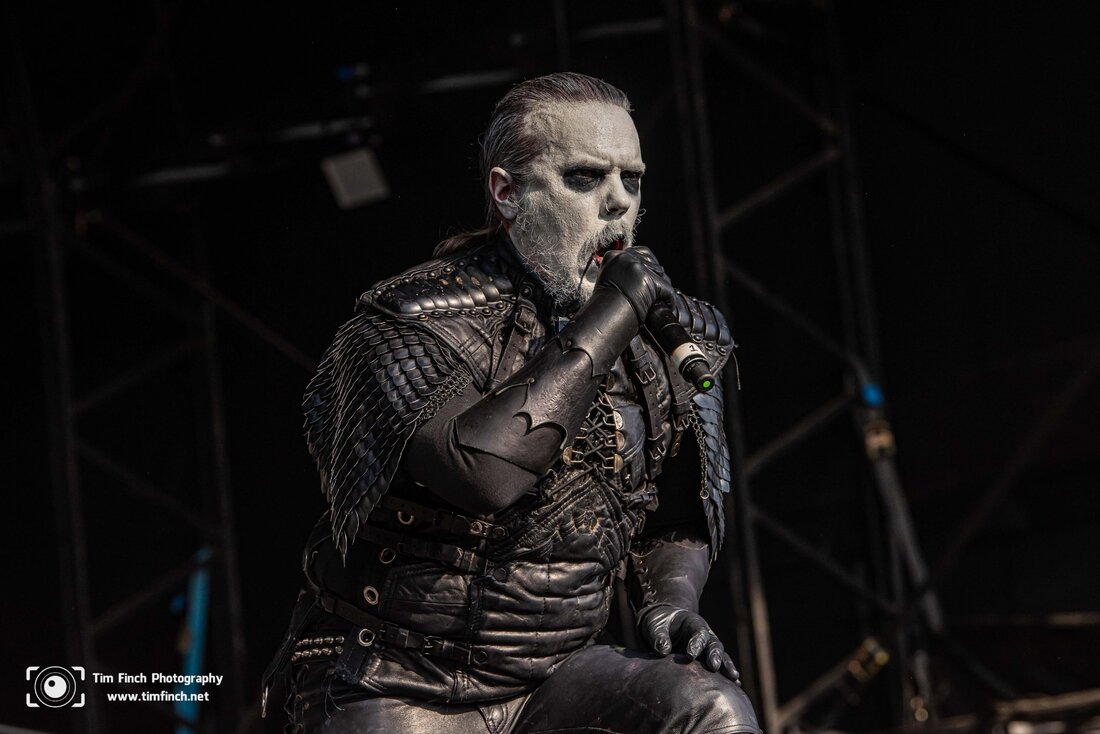
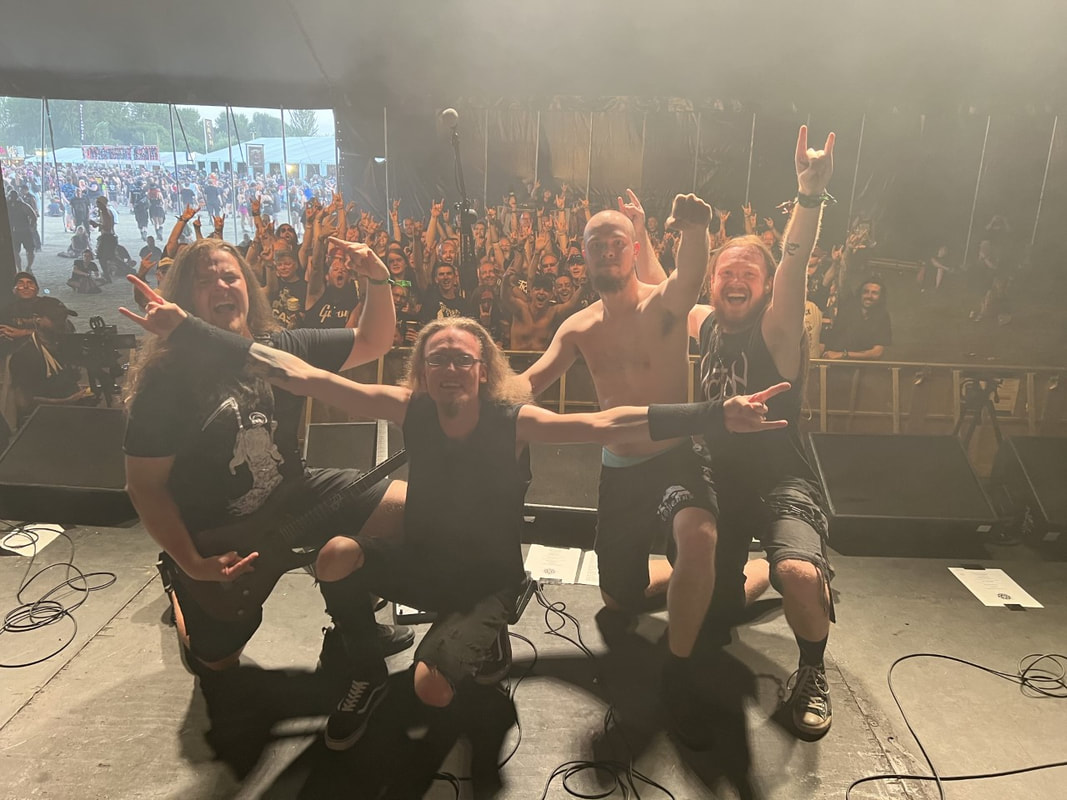
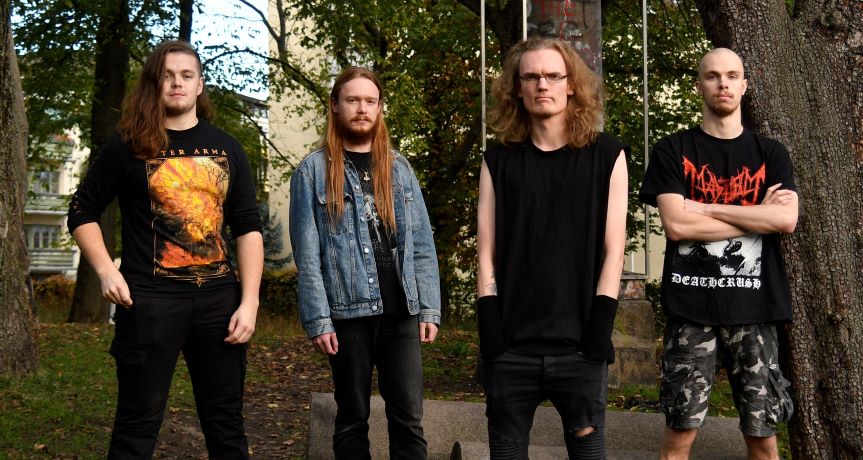
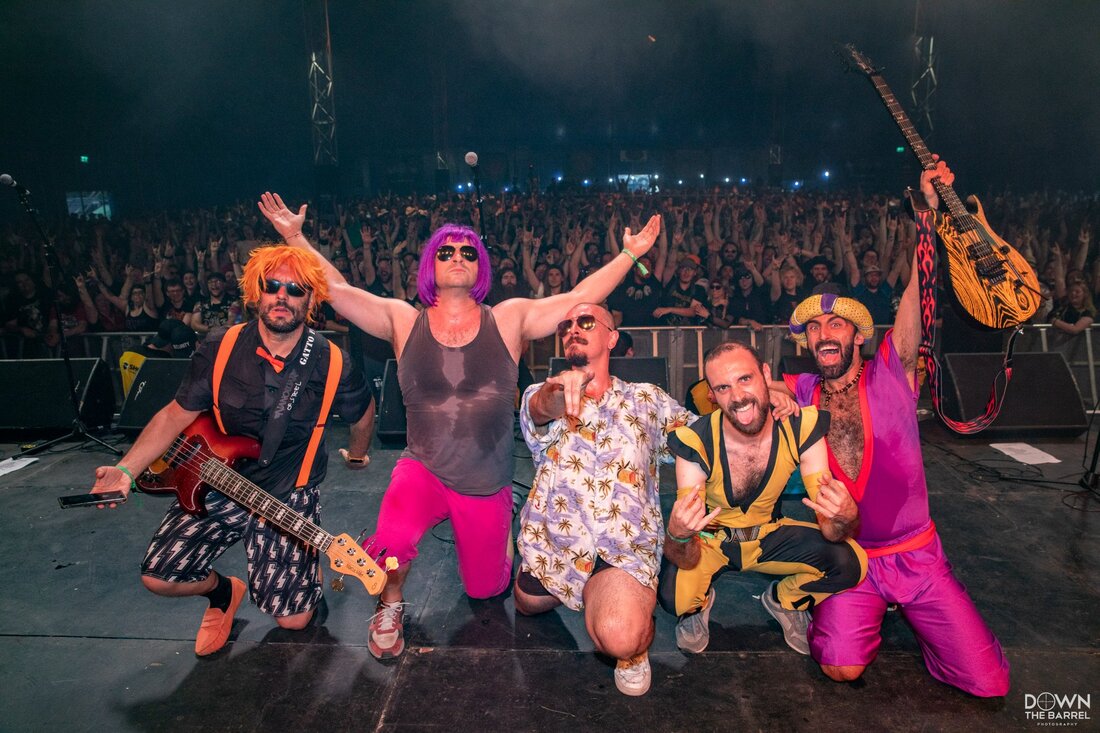
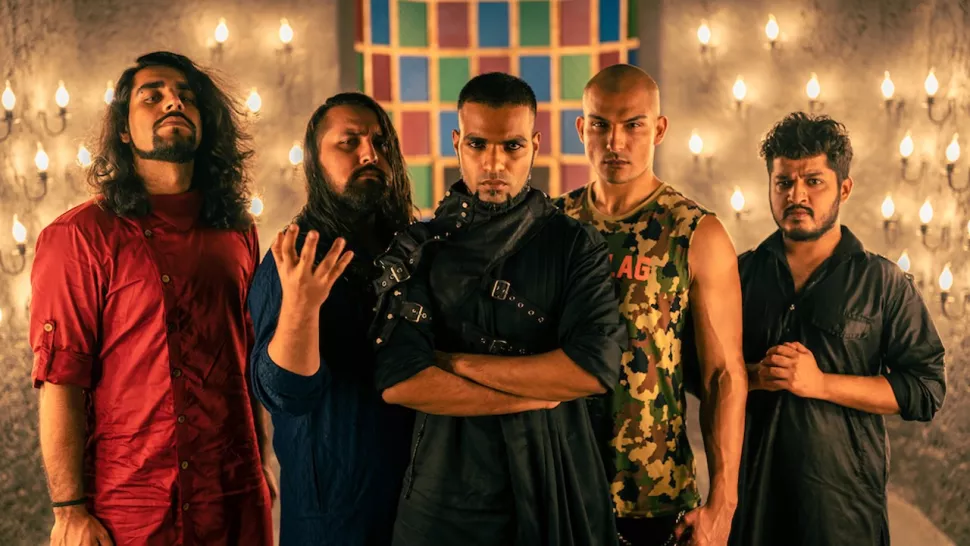
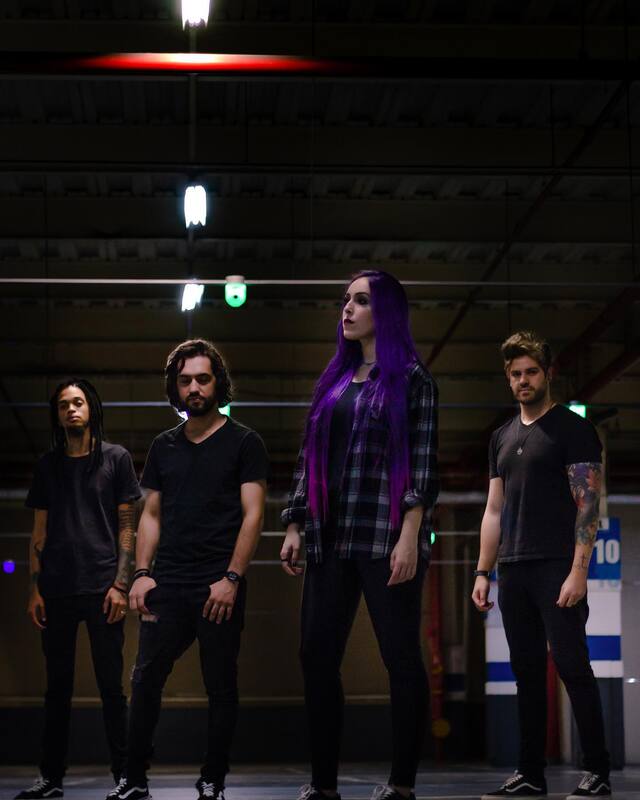
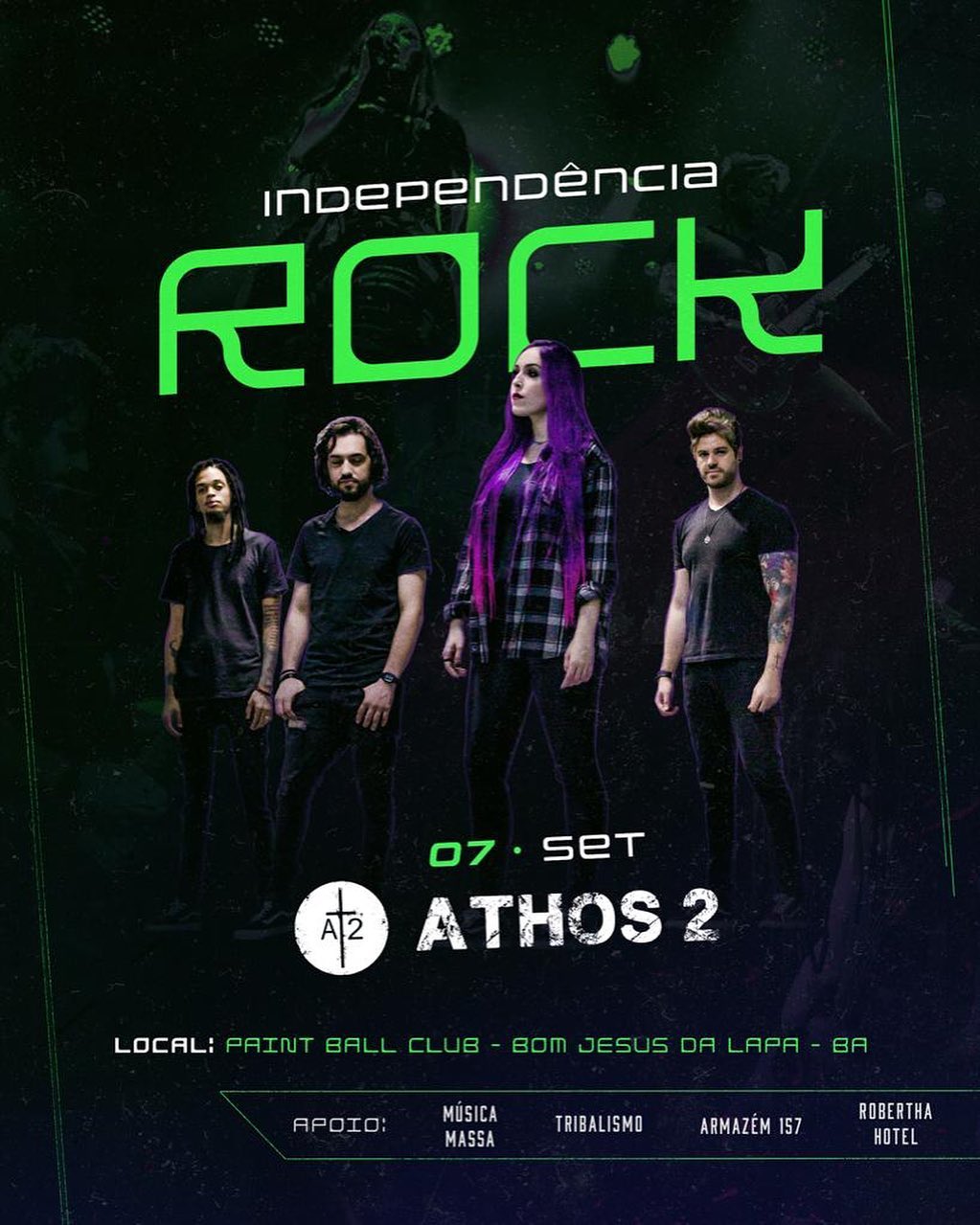
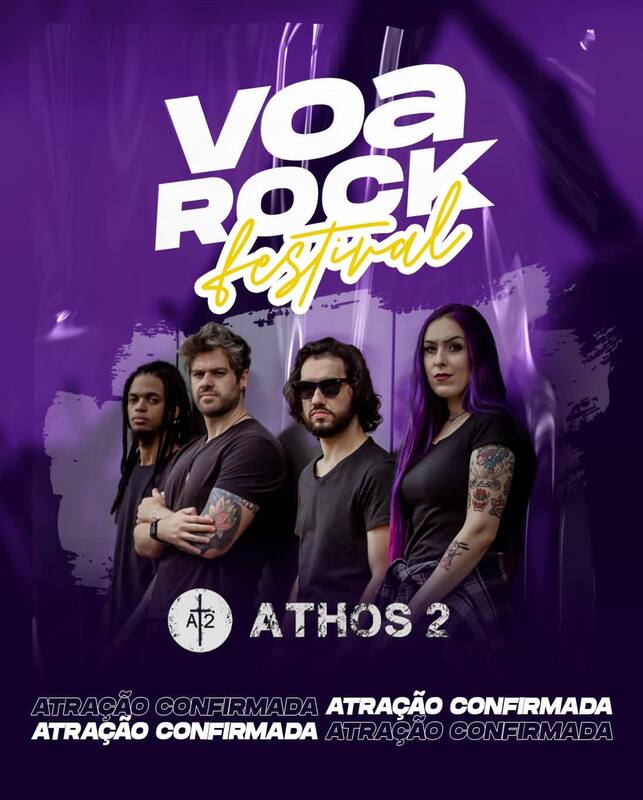
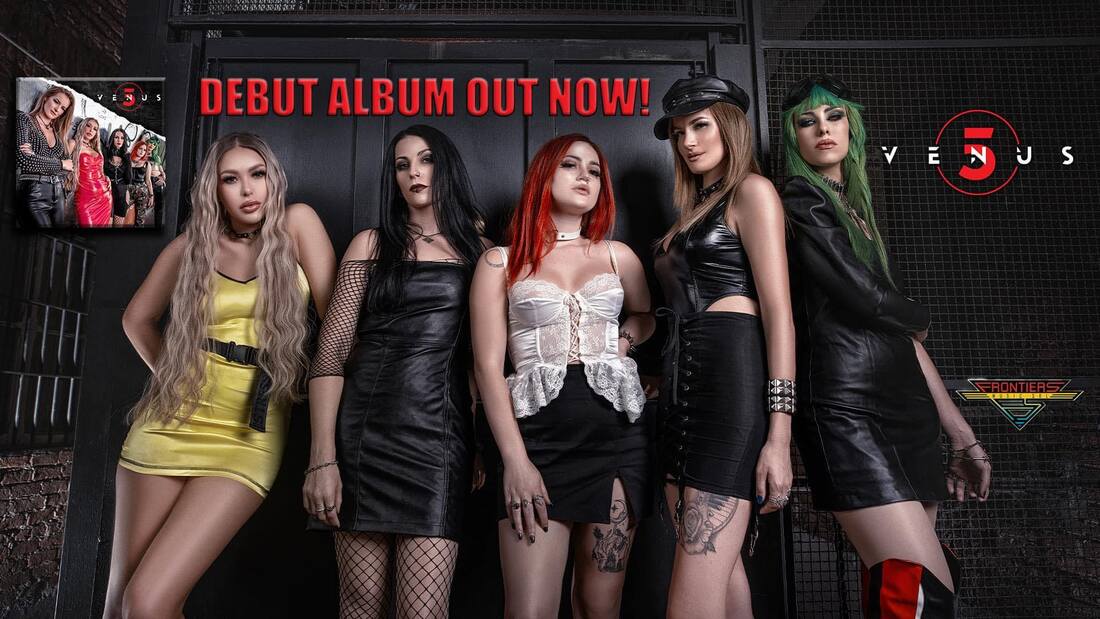
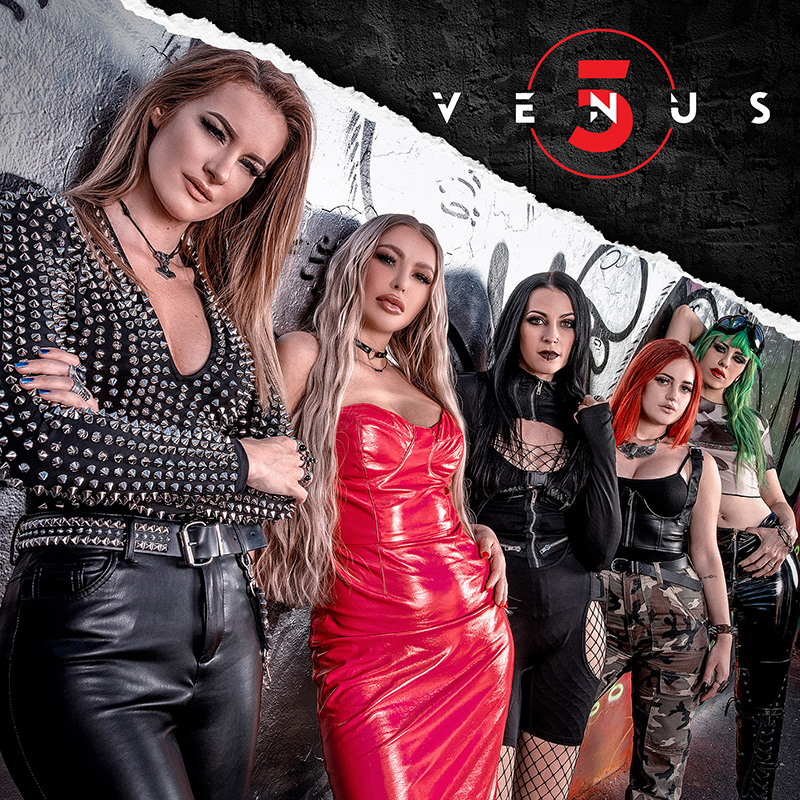
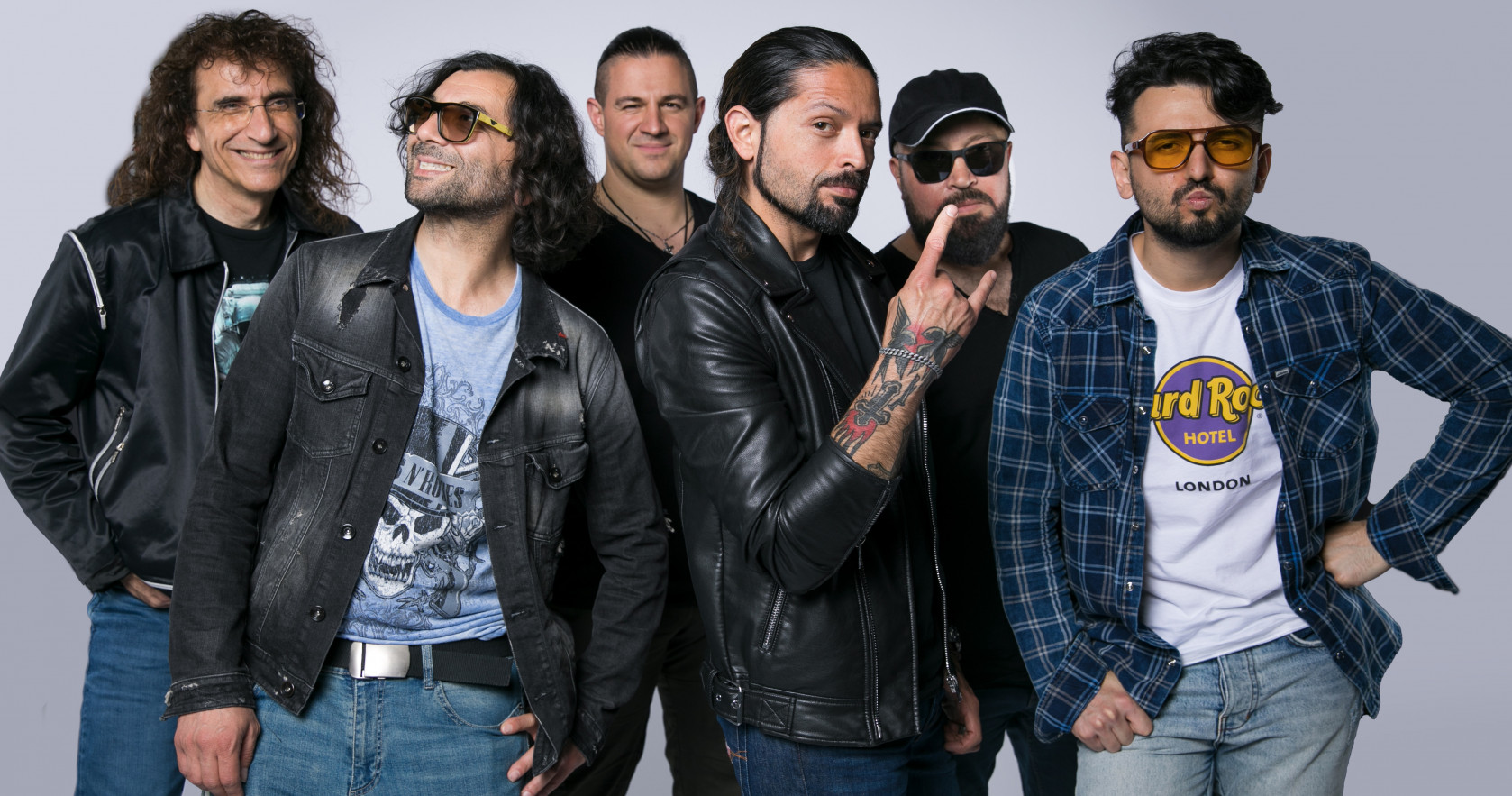

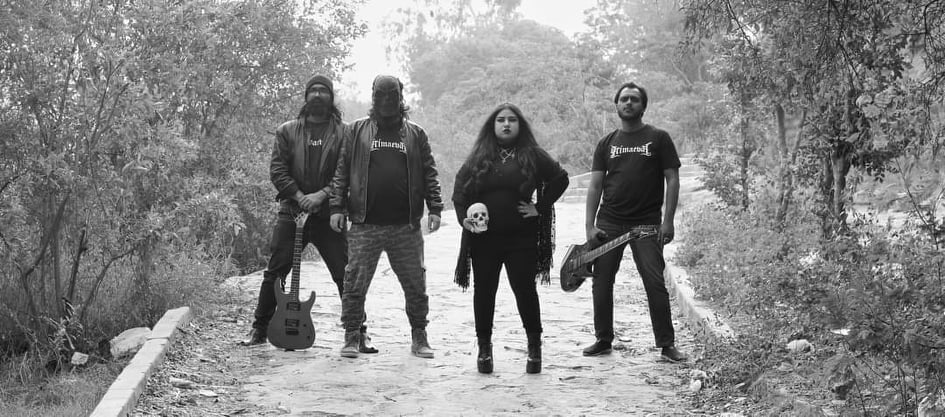
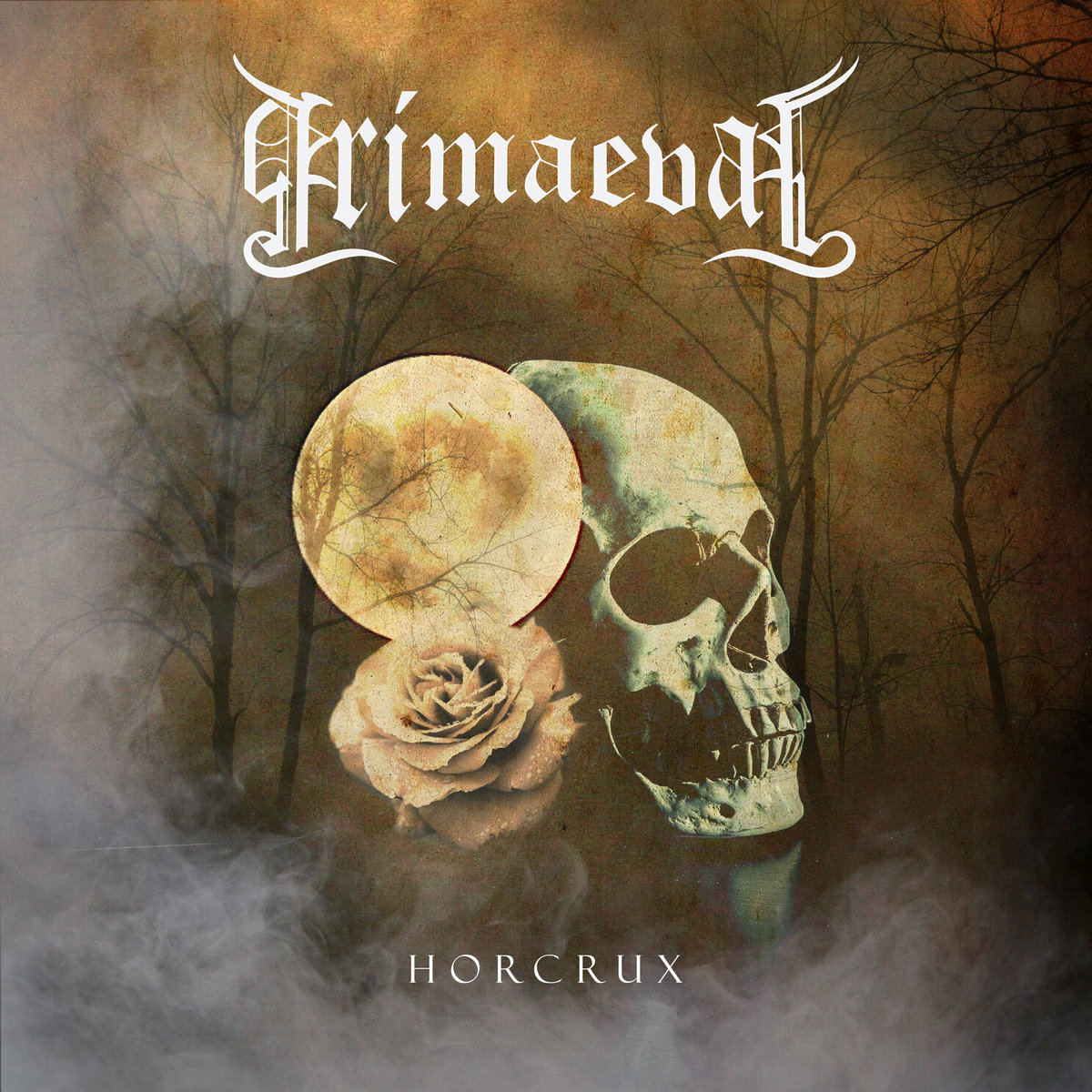
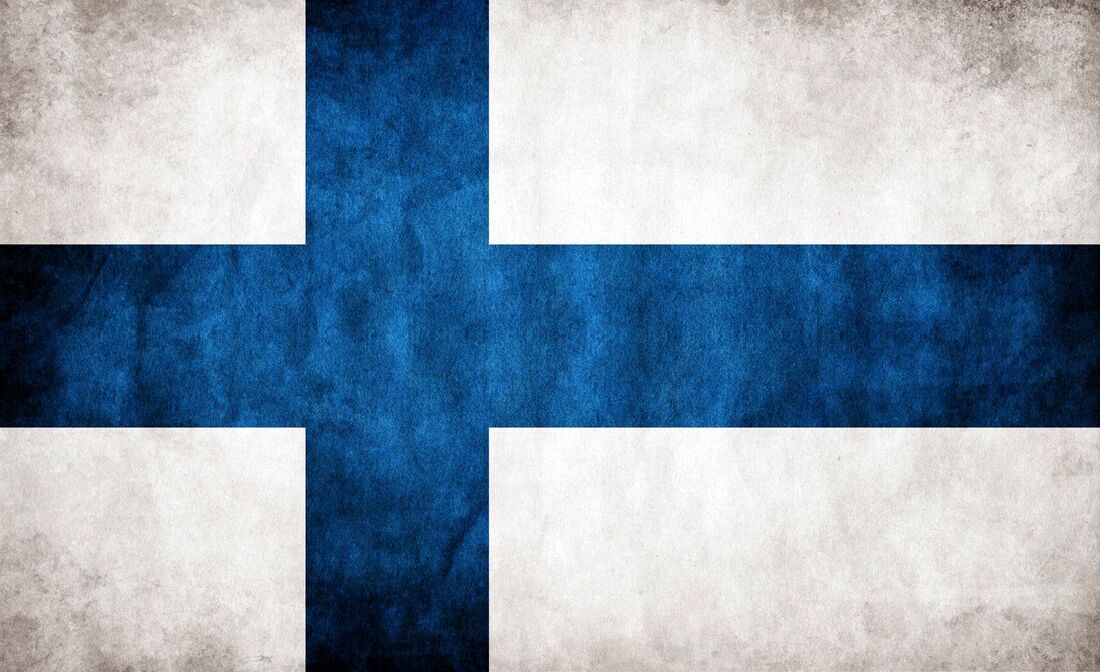
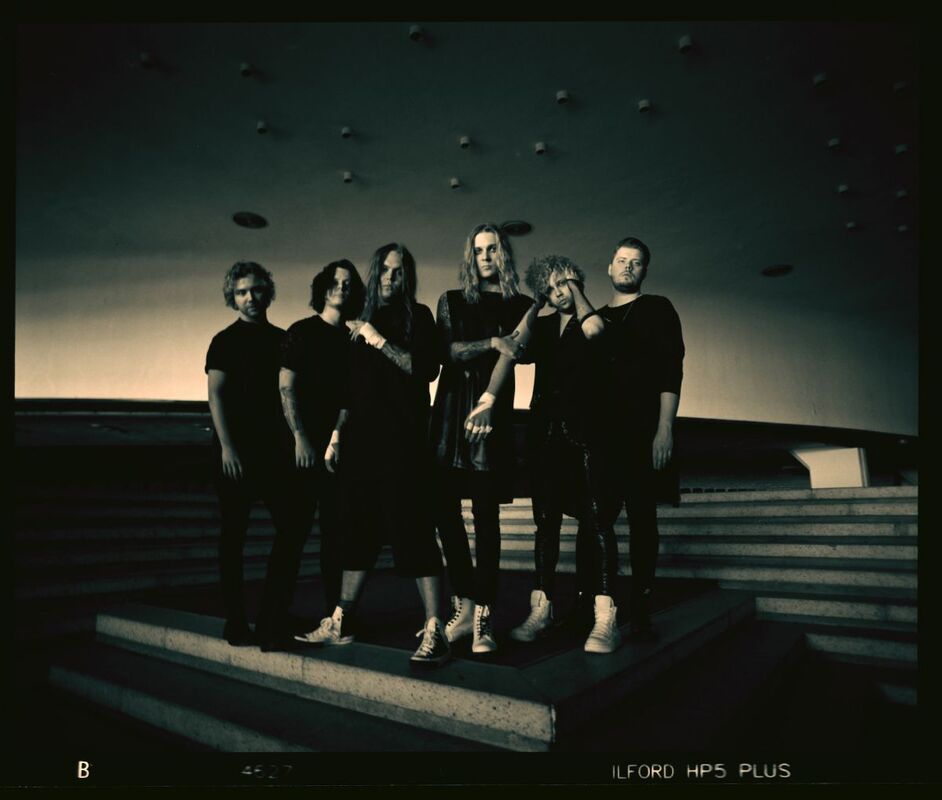
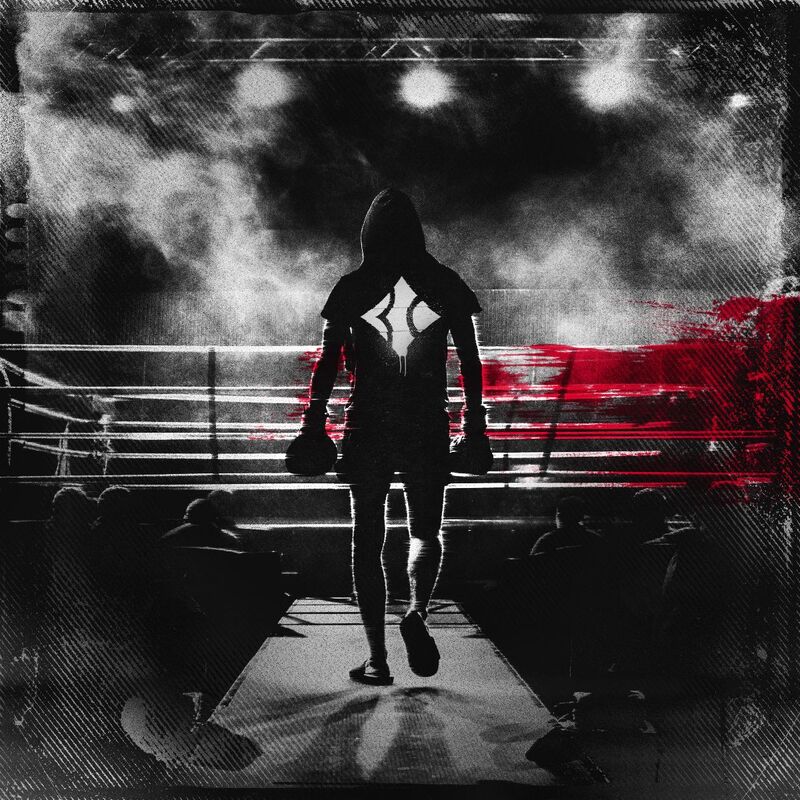

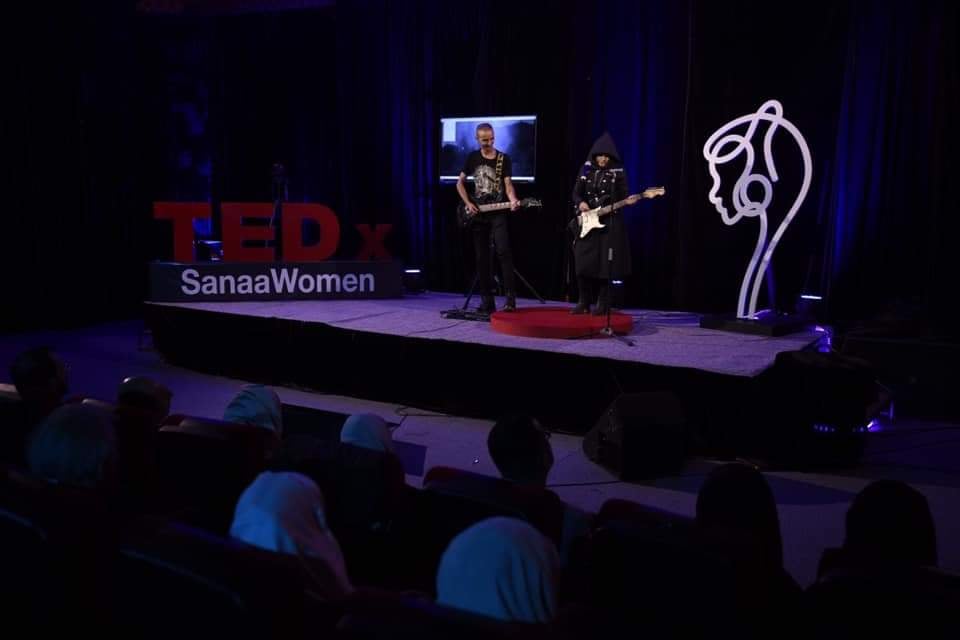
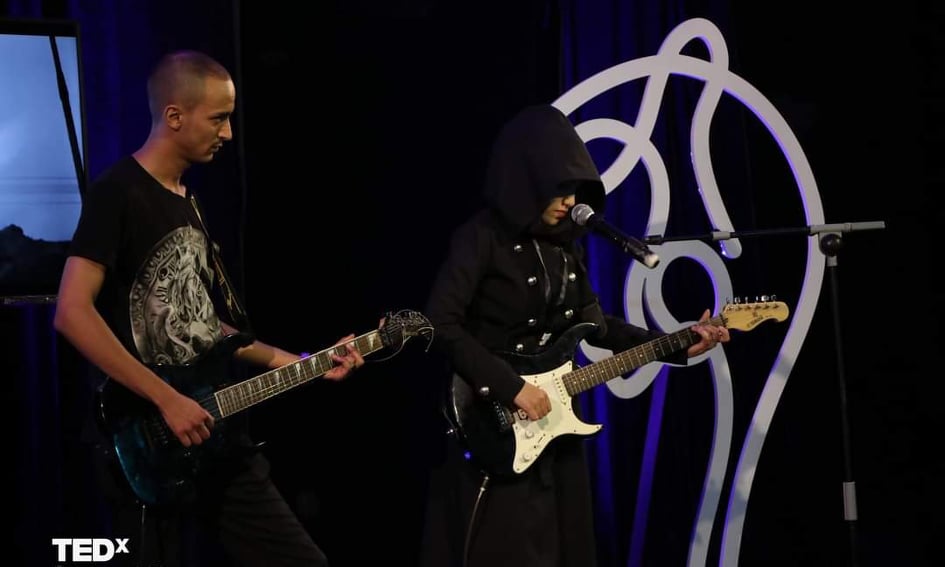
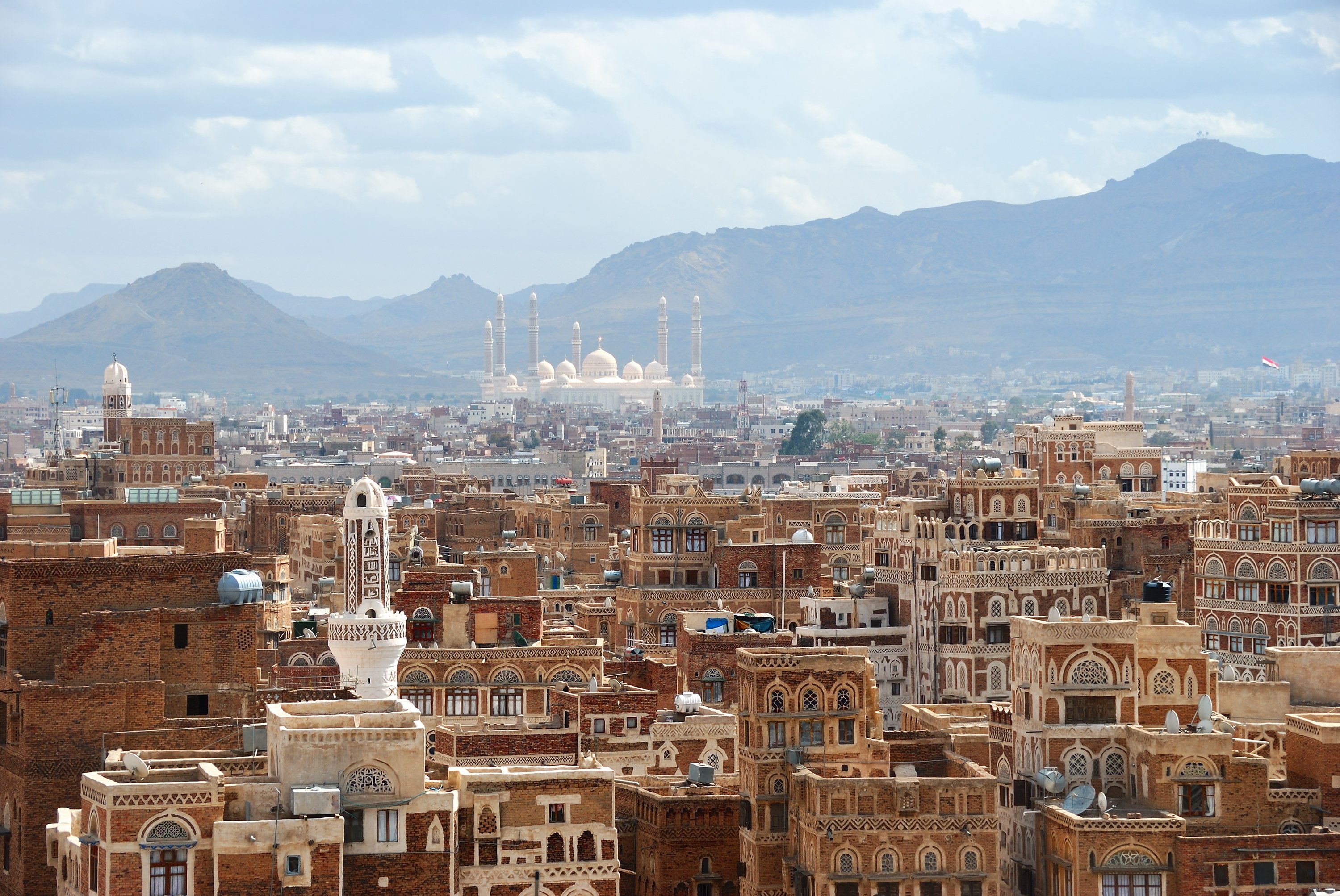
 RSS Feed
RSS Feed